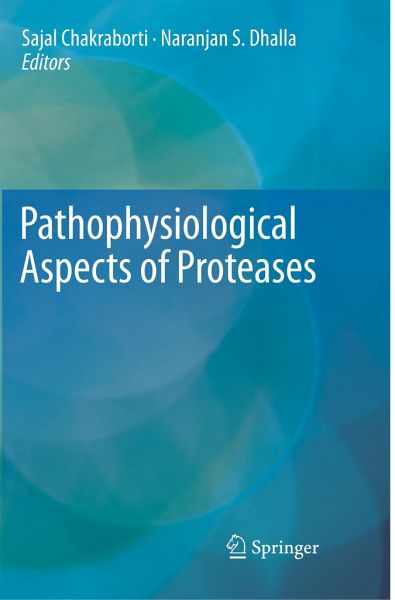
Pathophysiological Aspects of Proteases
Versandkostenfrei!
Versandfertig in 6-10 Tagen
115,99 €
inkl. MwSt.

PAYBACK Punkte
58 °P sammeln!
This book provides a comprehensive overview of the multifaceted field of protease in the cellular environment and focuses on the recently elucidated functions of complex proteolytic systems in physiology and pathophysiology. Given the breadth and depth of information covered in the respective contributions, the book will be immensely useful for researchers working to identify targets for drug development. Multidisciplinary in scope, the book bridges the gap between fundamental and translational research, with applications in the biomedical and pharmaceutical industry, making it a thought-provo...
This book provides a comprehensive overview of the multifaceted field of protease in the cellular environment and focuses on the recently elucidated functions of complex proteolytic systems in physiology and pathophysiology. Given the breadth and depth of information covered in the respective contributions, the book will be immensely useful for researchers working to identify targets for drug development. Multidisciplinary in scope, the book bridges the gap between fundamental and translational research, with applications in the biomedical and pharmaceutical industry, making it a thought-provoking read for basic and applied scientists engaged in biomedical research. Proteases represent one of the largest and most diverse families of enzymes known, and we now know that they are involved in every aspect of a given organism's life functions. Under physiological conditions, proteases are regulated by their endogenous inhibitors. However, when the activity of proteases is not correctly regulated, disease processes such as tumour progression, vascular remodelling, atherosclerotic plaque progression, ulcer, rheumatoid arthritis, Alzheimer's disease and inflammation can result. Many infective microorganisms require proteases for replication or use them as virulence factors, which has facilitated the development of protease-targeted therapies for a variety of parasitic diseases.












